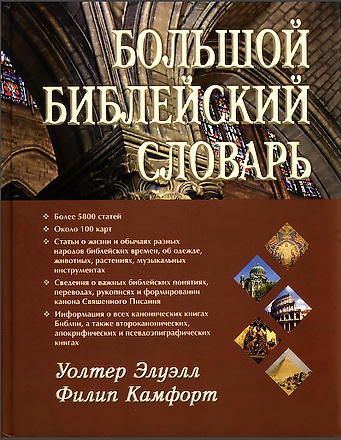
Cambridge Companions - Trends in Theology
Cambridge Companions to Religion: а series of companions to major topics and key figures in theology and religious studies. Each volume contains specially commissioned chapters by international scholars which provide an accessible and stimulating introduction to the subject for new readers and non-specialists.
На этой странице вы можете познакомиться с изданиями Cambridge Companions to Religion и скачать их файлы в формате PDF/EPUB.
An evangelical is:
- an orthodox Protestant
- who stands in the tradition of the global Christian networks arising from the eighteenth-century revival movements associated with John Wesley and George Whitefield;
- who has a preeminent place for the Bible in her or his Christian life as the divinely inspired, final authority in matters of faith and practice;
- who stresses reconciliation with God through the atoning work of Jesus Christ on the cross;
- and who stresses the work of the Holy Spirit in the life of an individual to bring about conversion and an ongoing life of fellowship with God and service to God and others, including the duty of all believers to participate in the task of proclaiming the gospel to all people.
This definition has been specifically devised for this volume. As I have tried it out on colleagues, they have jokingly referred to it as ‘‘the Larsen Pentagon,’’ which is a compliment to the standard definition of evangelicalism, the Bebbington Quadrilateral. The British historian, David Bebbington,in his seminal study, Evangelicalism in Modern Britain: A History from the 1730s to the 1980s (1989), defined evangelicalism by identifying its four distinguishing marks: conversionism, activism, biblicism, and crucicentrism – that is, evangelicals emphasize conversion experiences; an active laity sharing the gospel and engaged in good works; the Bible; and salvation through the work of Christ on the cross.1 Bebbington’s definition is routinely employed to identify evangelicalism; no other definition comes close to rivaling its level of general acceptance. It is the definition used by numerous scholars who have studied aspects of evangelicalism.2 For example, it is employed by the two main works of reference comprised of evangelical biographies that have been published since 1989, Donald M. Lewis, The Blackwell Dictionary of Evangelical Biography and my own Biographical Dictionary of Evangelicals.
The Cambridge Companion to Evangelical Theology
Edited by Timothy Larsen and Daniel J. Treier, 2007
- 1. Defining and locating evangelicalism. TIMOTHY LARSEN
Part I. Evangelicals and Christian doctrine
- 2. The triune God of the gospel. KEVIN J. VANHOOZER
- 3. Scripture and hermeneutics. DANIEL J. TREIER
- 4. Jesus Christ. JOHN WEBSTER
- 5. The human person in the Christian story. CHERITH FEE NORDLING
- 6. Justification and atonement. D. STEPHEN LONG
- 7. The Holy Spirit. TERRY L . CROSS
- 8. Conversion and sanctification. MIYON CHUNG
- 9. The church in evangelical theology and practice. LEANNE VAN DYK
Part II. The contexts of evangelical theology
- 10. Evangelical theology and culture. WILLIAM A. DYRNESS
- 11. Evangelical theology and gender. ELAINE STORKEY
- 12. Race and the experience of death: theologically reappraising American evangelicalism. J. KAMERON CARTER
- 13. Evangelical theology and the religions. VELI-MATTI KARKKAINEN
- 14. Evangelical theology in African contexts. TITE TIENOU
- 15. Evangelical theology in Asian contexts. SIMON CHAN
- 16. British (and European) evangelical theologies. STEPHEN R. HOLMES
- 17. Evangelical theology in Latin American contexts. C. RENE PADILLA
- 18. Evangelical theology in North American contexts. TIMOTHY GEORGE
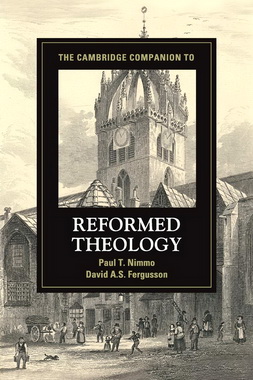
The Cambridge Companion to Reformed Theology
Edited by Paul T. Nimmo and David A. S. Fergusson, 2016
- 1. Introduction. Paul T. Nimmo and David A. S. Fergusson
Part I. Theological topics
- 2. Scripture. J. Todd Billings
- 3. Confessions. Michael Allen
- 4. Election. Rinse H. Reeling Brouwer
- 5. Christology. Bruce L. McCormack
- 6. Sacraments. Paul T. Nimmo
- 7. The Christian life. Cynthia L. Rigby
Part II. Theological figures
- 8. Huldrych Zwingli. Peter Opitz
- 9. John Calvin. Randall C. Zachman
- 10. Jonathan Edwards. Oliver D. Crisp
- 11. Friedrich Schleiermacher. Kevin W. Hector
- 12. Karl Barth. Michael Beintker
Part III. Theological contexts
- 13. Reformed theology and puritanism. Susan Hardman Moore
- 14. Reformed theology and scholasticism. Dolf te Velde
- 15. Reformed theology in continental Europe. Eberhard Busch
- 16. Reformed theology in the British Isles. David A. S. Fergusson
- 17. Reformed theology in North America. James D. Bratt
- 18. Reformed theology in Africa. Isabel Apawo Phiri
- 19. Reformed theology in Asia and Oceania.Sung Bihn Yim, Yasuhiro Sekikawa, Alexander Chow and Geoff Thompson
- 20. Reformed theology, mission, and ecumenism. Darrell L. Guder
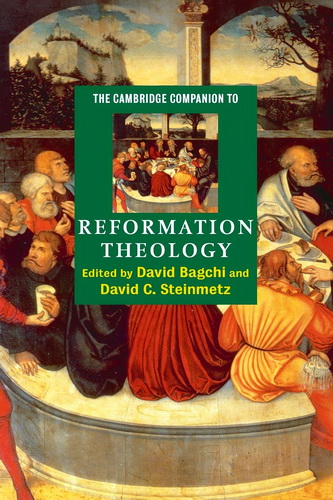
The Cambridge Companion to Reformation Theology
Edited by David Bagchi and David C. Steinmetz, 2004
- Introduction: the scope of Reformation theology. David Bagchi and David C. Steinmetz
- 1. Late medieval theology. Denis R. Janz
- 2. Lollardy. Wendy Scase
- 3. Hussite theology and the law of God. Thomas A. Fudge
- 4. The theology of Erasmus. Erika Rummel
- 5. Luther. Scott Hendrix
- 6. Melanchthon. Sachiko Kusukawa
- 7. Confessional Lutheran theology. Robert Kolb
- 8. The theology of Zwingli. W. Peter Stephens
- 9. Bucer. Ian Hazlett
- 10. The theology of John Calvin. David C. Steinmetz
- 11. John Calvin and later Calvinism: the identity of the Reformed tradition. Richard A. Muller
- 12. The theology of Thomas Cranmer. Peter Newman Brooks
- 13. The theology of the English reformers. Carl R. Trueman
- 14. The Scottish Reformation: theology and theologians. David F. Wright
- 15. An introduction to Anabaptist theology. Werner O. Packull
- 16. Catholic theologians of the Reformation period before Trent. David Bagchi
- 17. The Council of Trent. David C. Steinmetz
- Conclusion: Directions of future research. David C. Steinmetz and David Bagchi
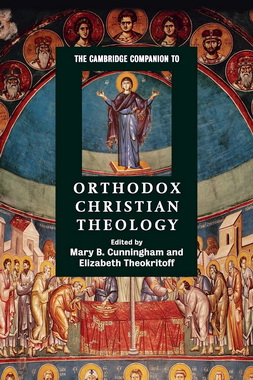
The Cambridge Companion to Orthodox Christian Theology
Edited by Mary B. Cunningham and Elizabeth Theokritoff, 2008
- A chronology of the Eastern Churches
- Who are the Orthodox Christians? A historical introduction. MARY B. CUNNINGHAM AND ELIZABETH THEOKRITOFF
Part I. Doctrine and Tradition
- 1. Scripture and tradition in the Church. THEODORE G. STYLIANOPOULOS
- 2. Biblical interpretation in worship. ARCHIMANDRITE EPHREM LASH
- 3. God in Trinity. BORIS BOBRINSKOY
- 4. Creator and creation. ELIZABETH THEOKRITOFF
- 5. The human person as image and likeness of God. NONNA VERNA HARRISON
- 6. Christ and salvation. PETER BOUTENEFF
- 7. Eschatology. BISHOP HILARION ALFEYEV
- 8. The Church. MATTHEW STEENBERG
- 9. Theology of the icon. MARIAMNA FORTOUNATTO AND MARY B. CUNNINGHAM
- 10. The spiritual way. JOHN CHRYSSAVGIS
Part II. Contemporary Orthodox Theology: its Formation and Character
- 11. Church Fathers and the shaping of Orthodox theology. AUGUSTINE CASIDAY
- 12. The patristic revival and its protagonists. ANDREW LOUTH
- 13. The Russian religious revival and its theological legacy. MICHAEL PLEKON
- 14. Some key themes and figures in Greek theological thought. ATHANASIOS N. PAPATHANASIOU
- 15. Personhood and its exponents in twentieth-century Orthodox theology. ARISTOTLE PAPANIKOLAOU
- 16. The witness of the Church in a pluralistic world: theological renaissance in the Church of Antioch. NICOLAS ABOU MRAD
- 17. Russian theology after totalitarianism. LEONID KISHKOVSKY
- 18. Orthodox Christianity in the West: the ecumenical challenge. JOHN A. JILLIONS
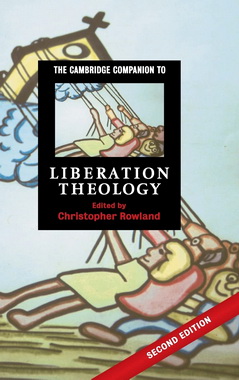
The Cambridge Companion to Liberation Theology
Edited by Christopher Rowland, 2nd Edition, 2007
- Introduction: the theology of liberation. CHRISTOPHER ROWLAND
Part I. Contemporary Liberation Theology
- 1. The task and content of liberation theology. G. GUT IERREZ translated by JUDITH CONDOR
- 2. ‘Action is the life of all’: the praxis-based epistemology of liberation theology. ZOE BENNETT
- 3. Liberation theology in Asia. BASTIAAN WIELENGA
- 4. Black theology. EDWARD ANTONIO
- 5. Feminist theology: a critical theology of liberation. MARY GREY
- 6. Demythologising liberation theology: reflections on power, poverty and sexuality. MARCELLA MARIA ALTHAUS-REID
Part II. Aspects of Liberation Theology
- 7. The origins and character of the base ecclesial community: a Brazilian perspective. ANDREW DAWSON
- 8. The Bible and the poor: a new way of doing theology. GERALD WEST
- 9. Liberation and reconstruction: the unfinished agenda. CHARLES VILLA-VICENCIO
Part III. Analysis and Criticism
- 10. Liberation theology and the Roman Catholic Church. PETER HEBBLETHWAITE
- 11. Marxism, liberation theology and the way of negation. DENYS TURNER
- 12. The economics of liberation theology. VALPY FITZGERALD
- 13. Political theology, tradition and modernity. OLIVER O’DONOVAN
- 14. Globalising liberation theology: the American context, and coda. IVAN PETRELLA
Epilogue: the future of liberation theology. CHRISTOPHER ROWLAND
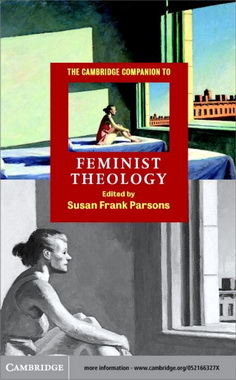
The Cambridge Companion to Feminist Theology
Edited by Susan Frank Parsons, 2002
Part one. The shape of feminist theology
- 1. The emergence of Christian feminist theology. Rosemary Radford Ruether
- 2. Feminist theology as intercultural discourse. Kwok Pui-Lan
- 3. Feminist theology as philosophy of religion. Pamela Sue Anderson
- 4. Feminist theology as theology of religions. Rita M. Gross
- 5. Feminist theology as post-traditional theology. Carol P. Christ
- 6. Feminist theology as biblical hermeneutics. Bridget Gilfillan Upton
- 7. Feminist theology as dogmatic theology. Susan Frank Parsons
Part two. The themes of feminist theology
- 8. Trinity and feminism. Janet Martin Soskice
- 9. Jesus Christ. Mercy Amba Oduyoye
- 10. The Holy Spirit and spirituality. Nicola Slee
- 11. Creation. Celia Deane-Drummond
- 12. Redeeming ethics. Susan Frank Parsons
- 13. Church and sacrament – community and worship. Susan A. Ross
- 14. Eschatology. Valerie A. Karras
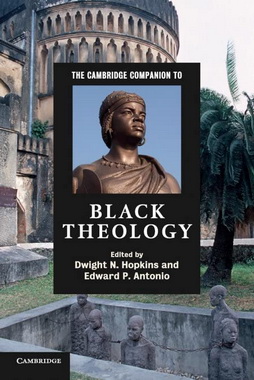
The Cambridge Companion to Black Theology
Edited by Dwight N. Hopkins and Edward P. Antonio, 2012
Part I. Introduction
- 1. General introduction. DWIGHT N. HOPKINS
- 2. Historical perspective. GAYRAUD S. WILMORE
- 3. Black theology and liberation theologies. EDWARD P. ANTONIO
- 4. The social sciences and rituals of resilience in African and African American communities. LINDA E. THOMAS
- 5. Black theology and womanist theology. DELORES s. WILLIAMS
Part II. Themes in black theology
- 6. God. DENNIS W. WILEY
- 7. Jesus in black theology: the ancient ancestor visits. JULIAN KUNNIE
- 8. Black theology and the Holy Spirit. GARTH BAKER-FLETCHER
- 9. Black theology and human purpose. RIGGINS R. EARL, JR.
- 10. Theology's great sin: silence in the face of white supremacy. JAMES H. CONE
- 11. Theodicy: "De Lawd knowed how it was." Black theology and black suffering. ALLAN A. BOESAK
- 12. Black theology and the Bible. MICHAEL JOSEPH BROWN
- 13. Protestant ecclesiology. JEREMIAH A. WRIGHT, JR.
- 14. Roman Catholic ecclesiology. CYPRIAN DAVIS, OSB
- 15. Dignity and destiny: black reflections on eschatology. J. DEOTIS ROBERTS
Part III. Global expressions of black theology
- 16. The history of black theology in South Africa. MOKGETHI MOTLHABI
- 17. Black theology in Britain. ANTHONY REDDIE
- 18. Slave religion and black theology in Brazil. WALTER PASSOS
- 19. Black theology in Cuba. RAUL SUAREZ RAMOS
- 20. Black theology in Jamaica. NOEL LEO ERSKINE
- 21. Methodology in an Aboriginal theology. ANNE PATTEL-GRAY
- 22. Black theology and postcolonial discourse. EDWARD P. ANTONIO
- 23. The future of black theology. JAMES H. EVANS, JR.
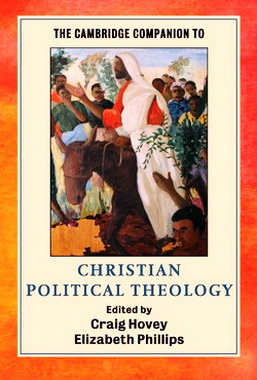
The Cambridge Companion to Christian Political Theology
Edited by Craig Hovey and Elizabeth Phillips, 2015
Part I. The Shape of Contemporary Political Theology
-
Mid-Twentieth Century Origins of the Contemporary Discipline
- 1. European Political Theology. Jürgen Moltmann
- 2. Liberation Theology. Miguel A. De La Torre
- 3. Public Theology. Hak Joon Lee
-
Political Theology and Related Discourses
- 4. Catholic Social Teaching. Lisa Sowle Cahill
- 5. Protestant Social Ethics. D. Stephen Long
-
Twenty-First Century Reimaginings
- 6. Postliberalism and Radical Orthodoxy. Daniel M. Bell Jr.
- 7. Postcolonial Theology. Susan Abraham
Part II. Contemporary Questions in Political Theology
-
The Contemporary Discipline and Traditional Sources
- 8. Scripture. Christopher Rowland
- 9. Augustinianisms and Thomisms. Eric Gregory and Joseph Clair
-
Issues
- 10. Liberalism and Democracy. Craig Hovey
- 11. Capitalism and Global Economics. Philip Goodchild
- 12. Political Theology as Threat. William T. Cavanaugh
-
Ends
- 13. Good Rule. Peter J. Leithart
- 14. Eschatology and Apocalyptic. Elizabeth Phillips
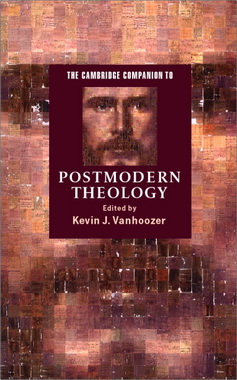
The Cambridge Companion to Postmodern Theology
Editor Kevin J. Vanhoozer, 2003
Part one: Types of postmodern theology
- 1. Theology and the condition of postmodernity: a report on knowledge (of God). Kevin J. VanHoozer
- 2. Anglo-American postmodernity: a theology of communal practice. Nancey Murphy and Brad J. Kallenberg
- 3. Postliberal theology. George Hunsinger
- 4. Postmetaphysical theology. Thomas A. Carlson
- 5. Deconstructive theology. Graham Ward
- 6. Reconstructive theology. David Ray Griffin
- 7. Feminist theology. Mary McClintock Fulkerson
- 8. Radical orthodoxy. D. Stephen Long
Part two: Christian doctrine in postmodern perspective
- 9. Scripture and tradition. Kevin J. VanHoozer
- 10. Theological method. Dan R. Stiver
- 11. The Trinity. David S. Cunningham
- 12. God and world. Philip Clayton
- 13. The human person. John Webster
- 14. Christ and salvation. Walter Lowe
- 15. Ecclesiology. Stanley J. Grenz
- 16. Holy Spirit and Christian spirituality. David F. Ford
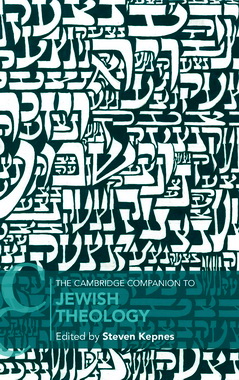
The Cambridge Companion to Jewish Theology
Edited by Steven Kepnes, 2020
- 1. Introduction. STEVEN KEPNES
- 2. What is Jewish Theology? DAVID NOVAK
Part I. Biblical-Rabbinic
- 3. Jewish Biblical Theology. MARVIN A. SWEENEY
- 4. The God of the Rabbis. MOSHE HALBERTAL
- 5. The Theology of the Daily Liturgy. REUVEN KIMELMAN
Part II. Medieval
- 6. Maimonides’ Theology. DANIEL RYNHOLD
- 7. Law and Order: The Birth of a Nation and the Creation of the World. DANIEL FRANK
- 8. The Mystical Theology of Kabbalah: From God to Godhead. ADAM AFTERMAN
Part III. Modern
- 9. R. Kook: A This-Worldly Mystic. TAMAR ROSS
- 10. Rosenzweig’ s Midrashic Speech-Acts: From Hegel and German Nationalism to a Modern-day Ba ’ al Teshuvah. JULES SIMON
- 11. Levinas ’ Theological Ethics. RICHARD A. COHEN
Part IV. Contemporary Issues
- 12. The Holocaust and Jewish Theology. MICHAEL L. MORGAN
- 13. Theology and Halakhah in Jewish Feminisms. RONIT IRSHAI
- 14. Jewish Models of Revelation. ALAN BRILL
- 15. Jewish Theology of Religions. ALON GOSHEN-GOTTSTEIN
Part V. Analytic Philosophy and Theology
- 16. Can There Be a Positive Theology? KENNETH SEESKIN
- 17. Theological Realism and its Alternatives in Contemporary Jewish Theology. CASS FISHER
- 18. A Defense of Verbal Revelation. SAMUEL FLEISCHACKER
- 19. A Constructive Jewish Theology of God and Perfect Goodness. JEROME YEHUDA GELLMAN

The Cambridge Companion to Classical Islamic Theology
Edited by Tim Winter, 2008
- Introduction. Tim Winter
Part I. Historical perspectives
- 1. Qur’an and hadith. M. A. S. Abdel Haleem
- 2. The early creed. Khalid Blankinship
- 3. Islamic philosophy (falsafa). Hossein Ziai
- 4. The developed kala¯m tradition. Oliver Leaman (Part i) and Sajjad Rizvi (Part ii)
- 5. The social construction of orthodoxy. Ahmed El Shamsy
Part II. Themes
- 6. God: essence and attributes. Nader El-Bizri
- 7. Creation. David B. Burrell CSC
- 8. Ethics. Steffen A. J. Stelzer
- 9. Revelation. Yahya Michot
- 10. The existence of God. Ayman Shihadeh
- 11. Worship. William C. Chittick
- 12. Theological dimensions of Islamic law. Umar F. Abd-Allah
- 13. Theology and Sufism. Toby Mayer
- 14. Epistemology and divine discourse. Paul-A. Hardy
- 15. Eschatology. Marcia Hermansen
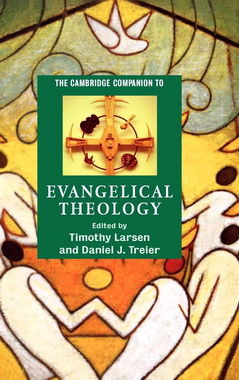
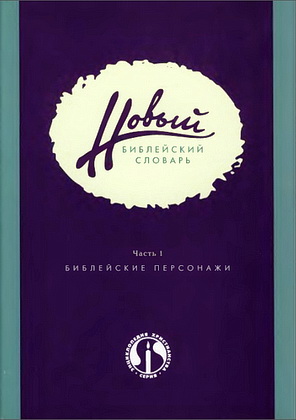
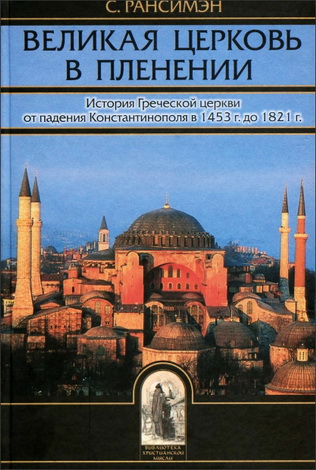
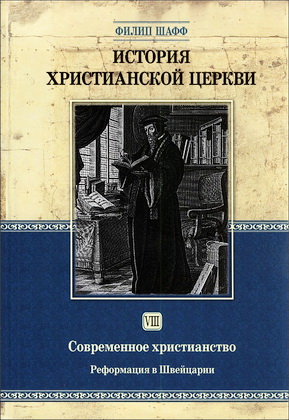

Комментарии (4 комментария)
Большое спасибо!
Спасибо огромные! Ценные пособия по всем направлениям современной теологии!
Не работает ссылка PDF The Cambridge Companion to Liberation Theology - 20/12/2022
Исправил